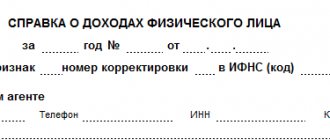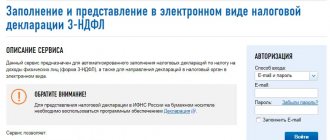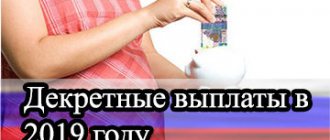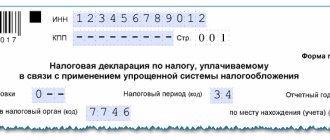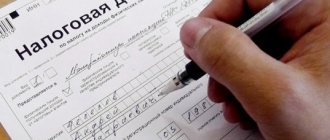Standard tax deduction is a reduction in the personal income tax withheld by a legal entity. The procedure for forming the tax base and the official conditions for receiving financial assistance from the state are established by law (Article 218 of the Tax Code of the Russian Federation). People who have the right to use the benefit include citizens providing for their own or adopted children. Among them:
- trustees,
- parents,
- adoptive parents,
- guardians.
A tax deduction of 1,400 rubles is provided by the state when people have their first children. The 3rd child and subsequent ones give the right to a more significant reduction in the calculation base for calculating personal income tax (3,000 rubles). The benefit remains until adulthood or 24 years of age, when completing full-time education. According to the current law, a disabled child of group I or II gives trustees or guardians a reason to receive financial assistance in the form of a tax deduction in the amount of 6,000 rubles. When he is supported by his parents or adoptive parents, the benefit increases to 12,000.
Limit of personal income tax deductions for children in 2021
The Tax Code of the Russian Federation contains a list of grounds on which people receive tax benefits. The law emphasizes that individuals entitled to a set of deductions are given one, the largest. The restriction does not affect children. Taxpayers receive benefits based on the number of employees. In addition, the amount doubles if the child is supported by one person.
The limitation is as follows:
- the provision of increased benefits ceases when the guardian gets married,
- to provide double the amount, a written refusal of the other parent is required, which causes difficulties during separation,
- Financial assistance is not provided if parents are deprived of their corresponding rights.
Who is entitled to receive this deduction?
According to the law, the following categories of citizens have the right to this:
- parents and their spouses;
- adoptive parents;
- guardians and trustees.
It is important to highlight the following points:
- Tax relief cannot be received by those people who do not have income subject to personal income tax. We are talking about individual entrepreneurs (individual entrepreneurs) working under a special tax regime (not the standard 13% personal income tax) and individuals (citizens) whose only income is unemployment benefits.
- If one of the spouses has a child from a previous marriage for whom alimony is paid, then the new child in the current marriage will be considered the second (and so on).
- If the current marriage is not officially registered, the second parent is able to receive a deduction by providing evidence that he is providing for the adopted child: an agreement on the payment of alimony (certified by a notary) or a court decision indicating the child’s registration details (do they coincide with the parent’s place of residence) .
- In some cases, it is possible to receive a double tax deduction:
if the parent is considered the only one. To confirm the fact that the second parent is absent, it is necessary to provide a certificate of his death or a court decision recognizing him as missing. A single parent can have a double SNA until they remarry;- if one of the parents voluntarily refused his deduction. The latter can be done if this parent submits a self-completed application to waive the child tax benefit and transfer this right to the second parent.
In fact, it is not easy for a person to issue a double tax deduction, since this issue is not described in detail in the law. However, the opportunity to do this exists.
Limit of personal income tax deductions for children in 2021
Changes in the base for calculating personal income tax occur monthly until a point determined by law. The benefit is not provided when the taxpayer’s income during the year exceeds the amount established by the Russian Government. In 2016, the milestone is considered to be the income of an individual in the amount of 350,000 rubles, fixed in Art. 218 part 2 of the Tax Code of the Russian Federation.
Another limitation is the age at which the child is trained and the amount of state support. These parameters are firmly fixed. When the student turns 24 years old, the benefit ceases to apply, even if the person continues his studies. The amount of 3,000 rubles is also not subject to increase with the appearance of 5, 6 and subsequent children.
The right to state support is confirmed by a certificate from an educational institution, which must have state accreditation and issue educational documents that comply with GOST. The correspondence form does not provide this right.
Standard deductions-2016
On January 1, 2021, the updated version of Art. 218 Tax Code of the Russian Federation. The main change is that the limit on child deductions in 2021 has increased to 350,000 rubles. In addition, deductions for disabled children have increased to 12,000 rubles.
To begin with, let us remind you that standard deductions can only be used by employees who are tax residents of the Russian Federation (that is, they are in the territory of the Russian Federation for at least 183 days per year), and only in relation to income that is subject to personal income tax at a rate of 13%. An employee has the right to submit an application and supporting documents for receiving a standard tax deduction for children to any employer who is the source of payment of income, regardless of the type of employment contract he has concluded, including on the terms of external part-time work (letter of the Ministry of Finance of Russia dated June 30, 2014 No. 03 -04-05/31345). In this case, the employer has no right to refuse.
Standard tax deductions in 2021 per employee
Standard tax deductions for personal income tax in 2021 can be provided to an employee in the following amounts: 3,000 rubles. and 500 rub.
Standard tax deduction in the amount of RUB 3,000. provided to the categories of citizens listed in paragraphs. 1 clause 1 art. 218 of the Tax Code of the Russian Federation, tax agent for each month of the tax period. There are no restrictions on the amount of annual income, that is, even if an employee receives more than 350,000 rubles, the employer must provide him with a deduction. Deduction 3000 rub. may be provided along with the standard child deduction, as well as property and social deductions. But if an employee has grounds for two standard deductions - 3,000 rubles. and 500 rubles, then the larger of them is used - 3000 rubles.
GOOD TO KNOW
The deduction amount is 3000 rubles. per month means that this amount is not subject to personal income tax. Withholding tax is reduced by only 390 rubles. = (3000 rub. x 13%) per month. The deduction amount is 500 rubles. per month means that this amount is not subject to personal income tax. The withholding tax itself is reduced by only 65 rubles. (500 rub. x 13%) per month.
A specific list of documents required to confirm the taxpayer’s right to standard tax deductions, Ch. 23 of the Tax Code of the Russian Federation has not been established. The basis for providing the taxpayer with a standard deduction in the amount of 3,000 rubles. can be:
- certificate of participation in the liquidation of the consequences of the Chernobyl disaster at the Mayak production association;
- WWII disabled person's certificate;
- certificate of participant in the actions of special risk units;
- other similar documents issued according to the samples established by law.
As for the application, the application for deduction for submission to the tax agent only needs to be completed once. A new application will need to be submitted if the taxpayer’s basis for deduction changes (see letter of the Ministry of Finance of Russia dated 08.08.2011 No. 03-04-05/1-551).
GOOD TO KNOW
In cases where in certain months of the tax period the taxpayer did not have income subject to personal income tax at a rate of 13%, standard tax deductions are provided in subsequent months in which the income was received.
The right to a standard personal income tax deduction in the amount of 500 rubles. have the categories of taxpayers listed in paragraphs. 2 p. 1 art. 218 Tax Code of the Russian Federation. When providing the specified deduction, there are also no restrictions on the amount of annual income; it is provided along with other deductions, except for the standard one in the amount of 3,000 rubles, and from any employer of choice.
The basis for providing a standard deduction in the amount of 500 rubles. can be:
- documents confirming disability;
- certificate of participation in the liquidation of the consequences of the disaster at the Chernobyl nuclear power plant, at the Mayak production association;
- combat veteran certificate;
- certificate of participant in the actions of special risk units;
- book of Hero of the Soviet Union, Hero of Russia;
- certificate of entitlement to benefits;
- a certificate indicating voluntary departure from the populated area;
- a certificate from a medical organization about bone marrow donation;
- other similar documents issued according to the samples established by law.
The application for the tax agent only needs to be completed once. A new application will need to be submitted if the taxpayer's basis for deduction changes.
POSITION OF THE MINISTRY OF FINANCE
If the payment of income starting from any month is completely stopped and is not resumed until the end of the tax period, the standard tax deduction for the specified months of the tax period is not provided by the tax agent, since the tax base is not determined after the termination of payments.
— Letter dated September 26, 2013 No. 03-04-06/39970.
Deduction for children in 2021
In accordance with paragraphs. 4 paragraphs 1 art. 218 of the Tax Code of the Russian Federation, taxpayers who support children (including adopted children) are provided with a standard tax deduction for personal income tax. Taxpayers who can receive a child deduction include:
- parents (letter of the Ministry of Finance of Russia dated 02/09/2010 No. 03-04-06/8-13);
- spouse of the parent (letters of the Ministry of Finance of Russia dated June 27, 2013 No. 03-04-05/24428, dated February 13, 2012 No. 03-04-05/8-169);
- adoptive parents;
- guardians (letter of the Ministry of Finance of Russia dated April 21, 2009 No. 03-04-06-02/29);
- trustees;
- adoptive parents;
- spouse of the adoptive parent.
A tax deduction is made for each child under the age of 18, as well as for each full-time student, graduate student, resident, intern, student, cadet under the age of 24 (letter of the Ministry of Finance of Russia dated July 17, 2009 No. 03-04-05- 01/571, Federal Tax Service of Russia for Moscow dated April 17, 2009 No. 20-15/3/ [email protected] ). In this case, it does not matter whether studies are taking place in Russia or abroad (letter of the Ministry of Finance of Russia dated April 15, 2011 No. 03-04-05/5-263).
IMPORTANT IN WORK
Children's deductions are provided regardless of other types of standard deductions.
From 01/01/2016, the personal income tax deduction for each month of the tax period applies to the parent, spouse of the parent, adoptive parent , who is supporting the child, and is provided in the following amounts:
- 1400 rub. – for the first child;
- 1400 rub. – for the second child;
- 3000 rub. – for the third and each subsequent child.
Moreover, if a child under the age of 18 is a disabled child, or for a full-time student, graduate student, resident, intern, student under the age of 24, if he is a disabled person of group I or II, the deduction is provided in the following sizes:
- in the amount of 12,000 rubles. for each month - to the parent, spouse of the parent, adoptive parent, who is providing for the child;
- in the amount of 6000 rubles. per month - to the guardian, trustee, adoptive parent, spouse of the adoptive parent, who is providing for the child.
POSITION OF THE MINISTRY OF FINANCE
Taxpayers who have lost the status of a guardian or trustee due to their wards reaching the age of 18 are not entitled to a standard tax deduction, even if the former ward is a full-time student, graduate student, resident, undergraduate, or cadet.
— Letter dated October 25, 2013 No. 03-04-05/45277.
The income threshold up to which tax deductions for children (child) should be applied is RUB 350,000 starting from 2021. Starting from the month in which income exceeded the established limit, the tax deduction is not applied (clause 4, clause 1, article 218 of the Tax Code of the Russian Federation).
The amount of the standard deduction provided to a taxpayer who is supporting a disabled child is determined by adding the amounts specified in paragraph. 8–11 pp. 4 paragraphs 1 art. 218 Tax Code of the Russian Federation. The Supreme Court of the Russian Federation came to this conclusion (clause 14 of the Review of Practice, approved by the Presidium of the Supreme Court of the Russian Federation on October 21, 2015). The court proceeded from the literal content of paragraphs. 4 paragraphs 1 art. 218 of the Tax Code of the Russian Federation, according to which the total amount of the standard tax deduction is determined by two circumstances: what kind of account the child has become for the parent and whether he is disabled. These criteria are not specified in the law as alternatives, and therefore the amount of the deduction can be determined by adding the given amounts. Consequently, the total tax deduction for a disabled child born first should be 13,400 rubles. and 7400 rub. per month, respectively, based on the amount of deductions of 1400 rubles. and 12,000 or 6,000 rubles.
Standard child tax deductions can be provided in double the amount to the only parent, as well as if the second parent refuses the deduction.
The concept of “sole parent” is not defined by law (letters of the Federal Tax Service of Russia dated May 15, 2009 No. 3-5-03 / [email protected] , dated September 17, 2009 No. ShS-22-3/721). Specialists of the Ministry of Finance of Russia in their numerous letters (letters dated 04/13/2012 No. 03-04-05/8-503, dated 03/15/2012 No. 03-04-05/8-303, dated 08/06/2010 No. 03-04-05/ 5-426, dated November 25, 2008 No. 03-04-05-01/443, etc.) explain that the concept of “sole parent” means the absence of a second parent in a child (in particular, due to death, recognition of a parent as missing, absence in the child’s birth certificate there is an entry about the father, etc.).
To the head of JSC "MAGNAT" Aksenova O.A. to the manager Zasobina T.T.
Application for a double standard child tax credit
When determining the size of the tax base for calculating personal income tax in accordance with paragraphs. 4 paragraphs 1 art. 218 of the Tax Code of the Russian Federation provide me with a standard double tax deduction as a single parent for the maintenance of my child who is supported by me:
in the amount of 2800 rubles. – for the first child, Anna Vladimirovna Zasobina, born May 30, 2010.
The following documents are attached to the application:
1) a copy of the child’s birth certificate;
2) a certificate from the educational institution confirming that the child is studying full-time (for children aged 18 to 24 years);
3) a document confirming the absence of a second parent for the child.
Z A S O B I N A T. T. Zasobina
11.01.2016
During the year, a deduction for each child can be applied until the taxpayer’s income, calculated on an accrual basis from the beginning of the tax period (calendar year), does not exceed 350,000 rubles. – from January 01, 2021.
Starting from the month in which income exceeded the established limit, the tax deduction is not applied (clause 4, clause 1, article 218 of the Tax Code of the Russian Federation). In this case, what matters is the income of the taxpayer himself, and not the total income of both parents (see letter of the Ministry of Finance of Russia dated July 29, 2009 No. 03-04-06-01/196). When calculating the maximum amount, only those incomes that are taxed at a rate of 13% are taken into account (letter of the Federal Tax Service of Russia dated June 5, 2006 No. 04-1-04/300). Payments (income) exempt from personal income tax do not need to be taken into account (see letter of the Ministry of Finance of Russia dated March 21, 2013 No. 03-04-06/8872).
POSITION OF THE FTS
A parent's spouse can receive a deduction for a child who does not live with him. It is enough that the parent pays child support for this child.
— Letter dated September 17, 2013 No. BS-4-11/ [email protected]
What if the deduction exceeds the salary?
It is possible that the total deductions will be more than the wages of some employees. In addition, single parents still have the right to double the child deduction.
So what to do if the personal income tax base becomes equal to zero or goes negative? This situation is described in paragraph 3 of Art. 210 Tax Code of the Russian Federation. If the amount of tax deductions in the tax period turns out to be greater than the amount of income in respect of which the tax rate established by clause 1 of Art. 224 of the Tax Code of the Russian Federation, subject to taxation, for the same tax period, then in relation to this tax period the tax base is taken equal to zero, that is, wages simply will not be subject to income tax. For the next tax period, the difference between the amount of tax deductions in this tax period and the amount of income in respect of which the tax rate established by paragraph 1 of Art. 224 of the Tax Code of the Russian Federation, subject to taxation, is not transferred.
The difference between the amount of deductions and income that arose in one month can be transferred to another, but only within one year. This is confirmed by specialists from the Ministry of Finance of Russia in a letter dated October 22, 2009 No. 03-04-06-01/269.
Example 1.
O. A. Stepanova works at 0.5 rate and is raising three children alone: two aged 12 years and one aged 8 years. Also, O. A. Stepanova is the only parent and, accordingly, has the right to receive standard deductions for children in 2021 in double size. Salary of O. A. Stepanova – 9500 rubles. There are no additional payments. At the same time, she has the right to deductions in the amount of: 1,400 rubles. – for the first and second child and 3000 rubles. - on the third.
The total amount of deductions is:
((1400 + 1400 + 3000) x 2)) = 11,600.
Thus, the total amount of monthly deductions is greater than the employee’s salary:
11 600 > 9500.
Accordingly, the tax base for personal income tax is zero, and there is no need to withhold tax from wages.
O. A. Stepanova will receive a salary of 9,500 rubles.
IMPORTANT IN WORK
When determining the size of the standard tax deduction, the total number of children is taken into account, that is, the first child is the oldest child, regardless of whether a deduction is provided for him or not.
Loss of the right to deduct for children in 2021
The standard tax deduction for a child is provided until the end of the year in which he reaches the age of:
- 18 years;
- 24 years old if he is a full-time student, graduate student, resident, intern, student, cadet. Deductions are provided only during the period of study of children (study leave, issued in the prescribed manner, is also counted towards the period of study). If a child graduated from school before reaching 24 years of age, transferred to a correspondence course, or was expelled from an educational institution, then from the month following the month of graduation, the deduction is no longer provided (letter of the Ministry of Finance of Russia dated November 7, 2012 No. 03-04-05/ 8-1252, Federal Tax Service of Russia for Moscow dated 04/05/2012 No. 20-14/ [email protected] , Ministry of Finance of Russia dated 02/01/2012 No. 03-04-05/5-103, dated 11/06/2012 No. 03-04- 05/8-1251).
In addition, if a child gets married, then, according to the Russian Ministry of Finance, he ceases to be supported by his parents, therefore, a standard tax deduction for this child is not provided to parents (letter of the Russian Ministry of Finance dated March 31, 2014 No. 03-04-06/14217 ).
Taxpayers who have lost the status of a guardian or trustee due to their wards reaching the age of 18 do not have the right to a standard tax deduction (letter of the Ministry of Finance of Russia dated October 25, 2013 No. 03-04-05/45277, dated January 24, 2008 No. 03-04- 05-01/9), even if the former ward is a full-time student, graduate student, resident, student, cadet.
POSITION OF THE MINISTRY OF FINANCE
If a taxpayer has three supported children, two of whom are over 18 (24) years of age and the standard deduction is not provided for them, a standard tax deduction in the amount of 3,000 rubles is still provided for the third child.
— Letter dated April 17, 2014 No. 03-04-05/17619.
The order of determining the order of children
When determining the number of children of a taxpayer, the following are taken into account:
- his own children;
- children of the spouse from another marriage (letters of the Ministry of Finance of Russia dated 04/28/2014 No. 03-04-05/19992, dated 04/10/2012 No. 03-04-05/8-469);
- children who died at the time of the taxpayer’s application with a deduction (letter of the Ministry of Finance of Russia dated December 29, 2011 No. 03-04-05/8-1124);
- adopted children;
- ward children.
GOOD TO KNOW
A personal income tax taxpayer can refuse to receive a deduction only if he has the right to it.
Example 2.
D. D. Komarov has three children aged 10, 15 and 26 years. Of these, only two minor children aged 10 and 15 years have the right to deduction. No deductions apply to the older child. Salary of D. D. Komarov – 20,000 rubles.
D. D. Komarov is entitled to deductions in the amount of 1,400 for the second and 3,000 for the third child.
Accordingly, personal income tax will be 2028 rubles. ((RUB 20,000 – (RUB 1,400 + RUB 3,000)) 13%). D. D. Komarov will receive 17,972 rubles.
GOOD TO KNOW
The presence of taxable income for the second parent must be confirmed by relevant documents.
Example 3.
E.V. Golovanova has four children aged 16, 15, 8 and 5 years.
Moreover, her monthly income (salary) is 35,000 rubles.
E.V. Golovanova submitted a written application to the employer to receive a standard tax deduction for all children: for the maintenance of the first and second child - 1,400 rubles each, the third and fourth - 3,000 rubles. per month.
Thus, the total amount of tax deduction was 8,800 rubles. per month.
This amount will be deducted from the income of E.V. Golovanova until October inclusive, since it is in this month that taxable income from the beginning of the year will reach the threshold of 350,000 rubles.
Every month from January to October, the employer will calculate personal income tax for his employee E.V. Golovanova from the amount of 26,200 rubles, received from the difference in income taxed at a rate of 13% in the amount of 35,000 rubles. and the amount of tax deduction in the amount of 8800 rubles:
Personal income tax = (RUB 35,000 – RUB 8,800) x 13% = RUB 3,406.
Thus, E.V. Golovanov will receive 31,594 rubles.
During the period from November to December, the amount of withholding tax will be:
35,000 x 13% = 4,550 rubles.
An example of calculating the tax deduction for children
For clarity, the following initial data is offered: a mother is a citizen receiving an official salary of 70,000 rubles, and five children aged 21, 17, 13, 11 and 3 years. Having studied the current legislation, she submits a corresponding application to the employer. It states that the youngest and second son are entitled to a deduction in the amount of 2,800 rubles, the 3rd and 4th - 6,000, the eldest - a full-time student - also 3,000. The total amount is 11,800 rubles / month.
Next, this figure is deducted from the salary of a mother with many children until May, because during this period her income exceeds 350,000 rubles. Every month from January to May, personal income tax will be calculated using the formula: personal income tax = (70,000 - 11.8 thousand) x 13% = 7,566, and the woman will receive 62,434 rubles in her hands.
The difference is that without an application, a legal entity calculates personal income tax differently: 70 thousand x 13% = 9,100, and the employee’s net income would be 60,800, which is less by 1,634 rubles per month and 8,170 per year, taking into account the termination of state support in May.
TAX COMMENT
Mordvintsev R. F., lawyer of the Volgograd Interdistrict Bar Association
How to avoid mistakes when providing deductions for children?
1. The calculation of the limit includes income taxed with personal income tax at a rate of 13%: wages, payments under civil contracts, etc. Since 2015, income from equity participation (dividends) is taxed at a rate of 13%, however, when calculating the maximum amount of income for When receiving a deduction for children, they are not taken into account (clause 3 of Article 210 of the Tax Code of the Russian Federation).
2. Payments subject to other personal income tax rates, as well as non-taxable amounts, are not included in the calculation of the limit. Income that is partially exempt from personal income tax is taken into account in the limit only to the extent that it is subject to tax. For example, the cost of gifts is within 4000 rubles. is not subject to personal income tax and does not participate in the calculation, and everything that is above must be taken into account.
3. If the taxpayer does not start working in the first month of the tax period, the limit is calculated taking into account income received from previous employers. The amount of income received is confirmed by a certificate of income received by the taxpayer, issued by a tax agent in accordance with clause 3 of Art. 230 of the Tax Code of the Russian Federation (letter of the Ministry of Finance of Russia dated February 27, 2013 No. 03-04-05/8-154).
- Back
- Forward
Documents for obtaining a tax deduction for children
There are two ways to take advantage of the benefit:
- Application to the employer.
- 3-NDFL to the Federal Tax Service at the place of primary residence.
In the first case, the taxpayer receives financial assistance from the state during the tax period. The declaration is submitted when benefits were not provided for some reason.
Statement
At the same time, photocopies of the accompanying documents are submitted:
- birth or adoption certificate,
- spouses' passports, marriage document.
If available, served:
- document from educational institution,
- a certificate from a medical institution about the child’s condition.
If the employee is the only applicant, the following must be submitted:
- death certificate of husband (wife),
- passport,
- birth document drawn up according to the mother's words,
- a court decision declaring a person missing.
When the applicant is a guardian, attach:
- foster family agreement
- appropriate confirmation from the guardianship authorities.
Declaration
Along with 3-NDFL, the following is submitted to the Federal Tax Service:
- 2-NDFL from the tax agent’s accounting department,
- documents confirming the right to benefits,
- application on the form of the Federal Tax Service.
With the development of technology, the need to personally contact government employees has disappeared. Documents are submitted remotely, starting with first obtaining access to your personal account on the website of the Federal Tax Service. Having provided the necessary documents with payment details, the applicant awaits their verification and crediting of funds. You can find out about the results of the work done in your personal account or in a letter that the tax officer must send to the applicant after completing all bureaucratic procedures.
What social deductions can a taxpayer apply to an employer for?
Let us immediately note that a deduction for charity, provided in the amount of actual expenses incurred (but not more than 25% of the amount of income received in the tax period and subject to taxation), can be obtained only when filing a declaration with the tax office at the end of the tax period. Until January 1, 2016, employees had the right to contact a tax agent during the year to receive social deductions defined in paragraphs. 4, 5 p. 1 tbsp. 219 of the Tax Code of the Russian Federation (on the costs of paying additional insurance contributions for the funded part of the labor pension, as well as on non-state pension provision and voluntary pension insurance). This opportunity became available to taxpayers after the Federal Law of December 29, 2012 No. 279-FZ “On Amendments to Chapter 23 of Part Two of the Tax Code of the Russian Federation” came into force.
The mandatory conditions when applying to an employer for deductions are as follows:
- documentary evidence of the taxpayer's expenses in accordance with paragraphs. 4, 5 p. 1 tbsp. 219 Tax Code of the Russian Federation;
- withholding contributions under contracts of non-state pension provision, voluntary pension insurance, voluntary life insurance (if such contracts are concluded for a period of at least five years) and (or) additional insurance contributions for a funded pension from payments in favor of the taxpayer and their transfer by the employer to the relevant funds and (or) insurance organizations.
To receive a social tax deduction from your employer for contributions to non-state pension provision and additional contributions to a funded pension, you must:
- write an application addressed to the employer for the provision of a social deduction;
- if necessary, provide copies of documents that the employer does not have.
The employer must have the main documents confirming the expenses, since they deducted contributions from the employee’s income. However, documents may be required confirming the degree of relationship between the employee and the person for whom the taxpayer paid pension contributions (marriage certificate, birth certificate (adoption documents), child birth certificate (documents establishing guardianship (trusteeship) or adoption)), certificate about establishing a child's disability. Also, if the employer does not have a copy of the agreement with the NPF, such a copy must be attached. In addition, if the agreement does not contain information about the NPF license, you must provide a copy of the license certified by the signature of the director and the NPF seal.
Beginning January 1, 2021, taxpayers can apply to their employer for medical and education deductions. The corresponding amendments were made by Federal Law No. 85-FZ[1]: according to Art. 1 of this law in the new edition is set out in paragraph 2 of Art. 219 of the Tax Code of the Russian Federation.
So, social tax deductions for personal income tax 2021, provided for in paragraph 1 of Art. 219 of the Tax Code of the Russian Federation, are provided when the taxpayer submits a declaration to the tax authority at the end of the tax period, unless otherwise established by this paragraph.
According to the new edition of paragraph. 2 p. 2 art. 219 of the Tax Code of the Russian Federation, social tax deductions for treatment and training can be provided to the taxpayer before the end of the tax period when he submits a written application to the employer - tax agent.
At the same time, a mandatory condition is established: the taxpayer must confirm his right to receive social tax deductions. To do this, he submits to the tax agent the corresponding confirmation issued by the tax authority, in the form approved by the federal executive body authorized for control and supervision in the field of taxes and fees.
The taxpayer's right to receive the specified social tax deductions must be confirmed by the tax authority within a period not exceeding 30 calendar days from the date the taxpayer submits to the tax authority a written application and documents confirming the right to receive social tax deductions provided for in paragraphs. 2, 3 p. 1 art. 219 of the Tax Code of the Russian Federation.
Form of notification of confirmation of the taxpayer’s right to social tax deductions for personal income tax 2021, established by paragraphs. 2, 3 p. 1 art. 219 of the Tax Code of the Russian Federation, approved by Order of the Federal Tax Service of the Russian Federation dated October 27, 2015 No. ММВ-7-11/ [email protected]
For your information
Social tax deductions for treatment and education are provided to the taxpayer by the tax agent starting from the month in which the taxpayer applied to the tax agent to receive them in the manner established by paragraph. 2 p. 2 art. 219 of the Tax Code of the Russian Federation.
If, after the taxpayer has applied to the tax agent in the prescribed manner to receive such social deductions, the tax agent has withheld the tax without taking these deductions into account, the amount of the excess withheld after receiving a written application from the taxpayer shall be returned to the taxpayer in the manner established by Art. 231 Tax Code of the Russian Federation.
If, at the end of the tax period, the amount of the taxpayer’s income received from the tax agent was less than the amount of deductions for treatment and education, the taxpayer has the right to receive social tax deductions in the manner provided for in paragraph. 1 item 2 art. 219 of the Tax Code of the Russian Federation, that is, at the tax office after submitting the declaration.
For what periods is START granted?
When calculating, it is necessary to correctly indicate the dates of birth and majority of children for whom parents are able to receive a tax break. This has its own nuances, and for convenience, on the website of the Federal Tax Service (FTS) in the corresponding section there is an online service in which you can calculate specific amounts correctly.
Attention! START is provided from the month the child was born, adopted, or when guardianship (trusteeship) was established over him.
The tax break ends from the month:
exceeding the amount of income of 350 thousand rubles;- the child reaches 18 years of age (the age of majority), except if he is a full-time student at a university;
- completion of full-time studies and obtaining a certificate of higher education. The same applies to graduate school, internship, etc.;
- the end of the period of guardianship (trusteeship), when transferring the child to a foster family;
- death of a child (from January next year).
A young mother who is on maternity leave and caring for her baby will be assigned a SNV if accrual of personal income tax is recorded in her tax report for the year. When income exceeds the threshold of 350 thousand rubles, the relaxation is canceled.
